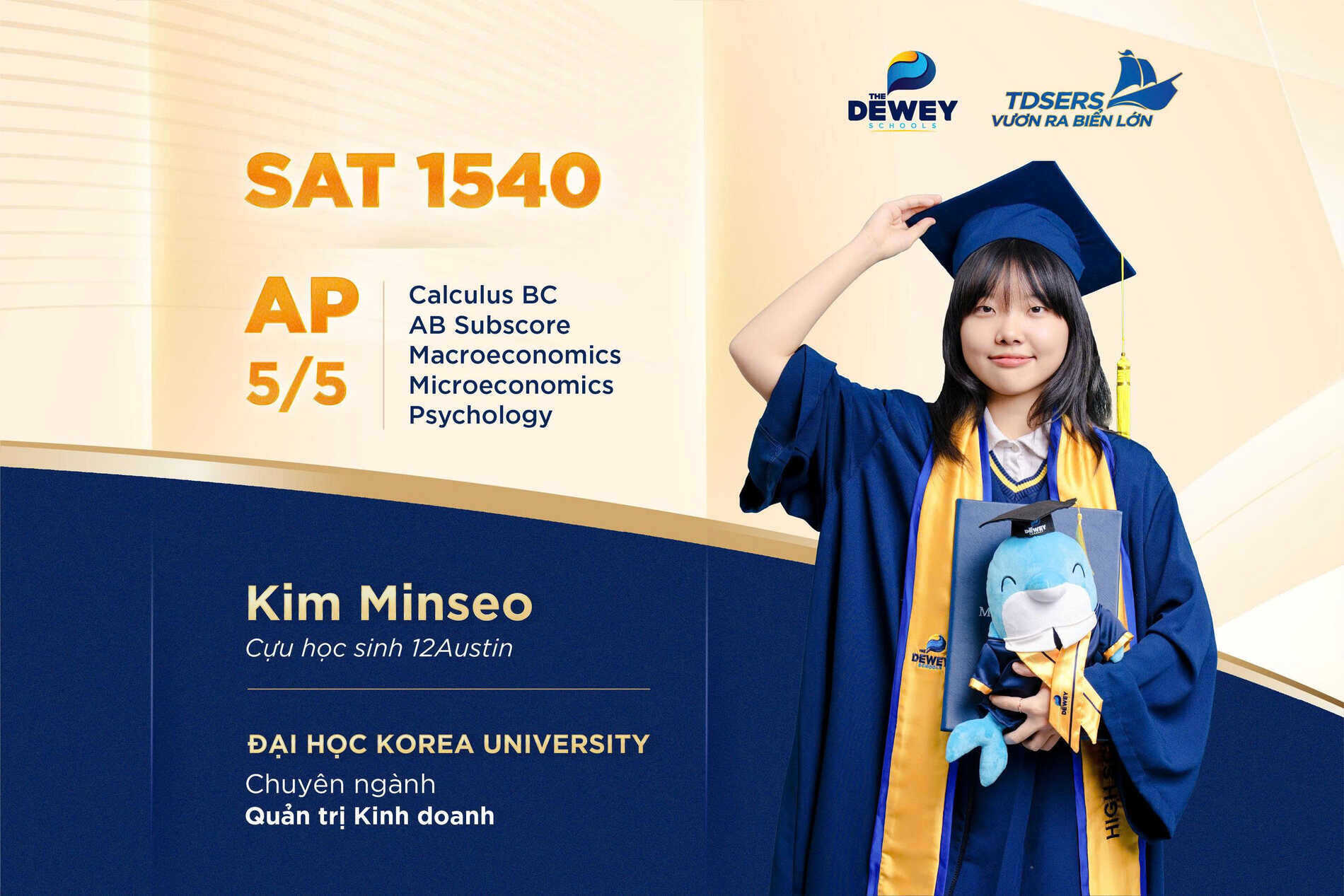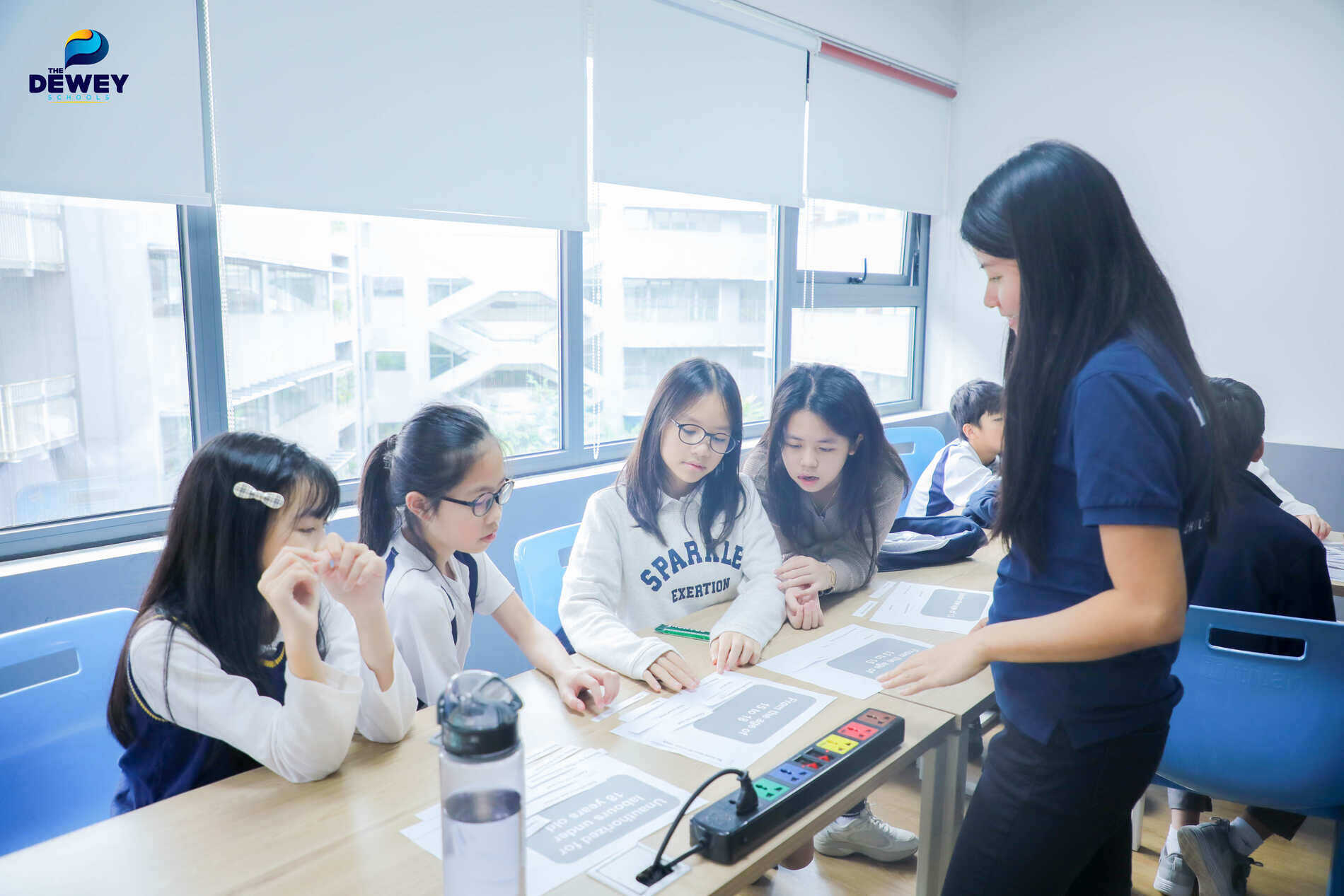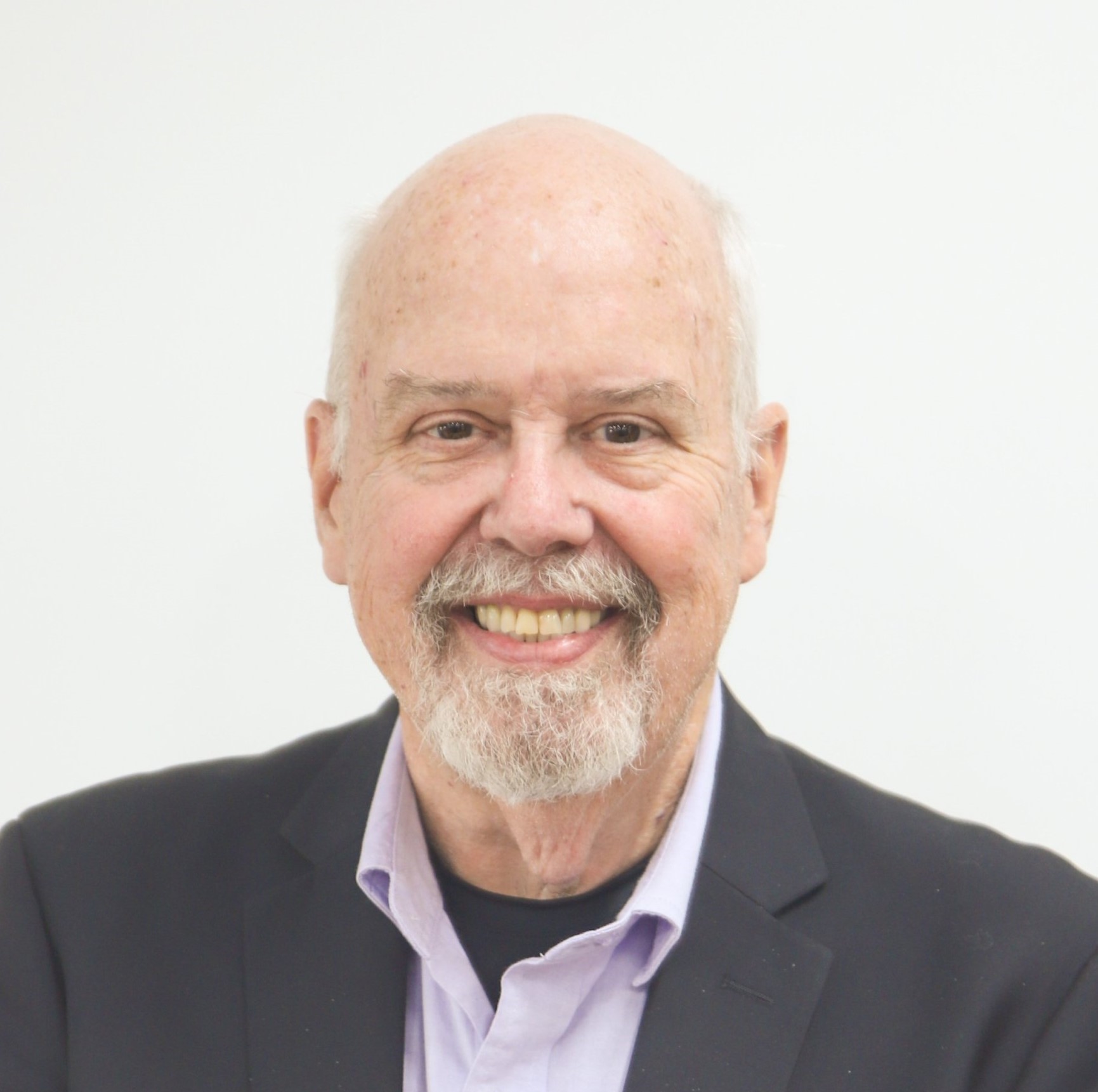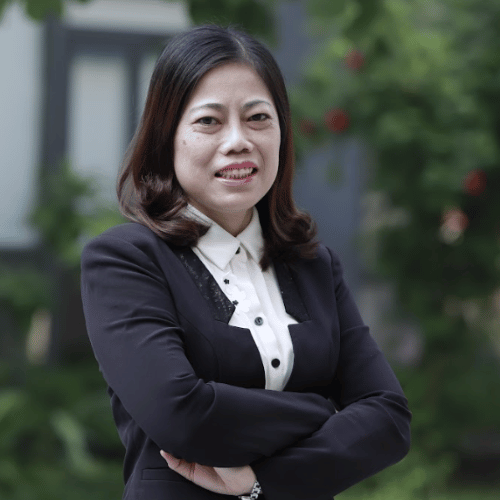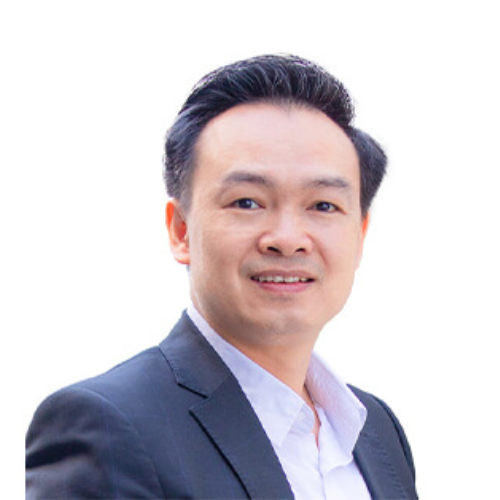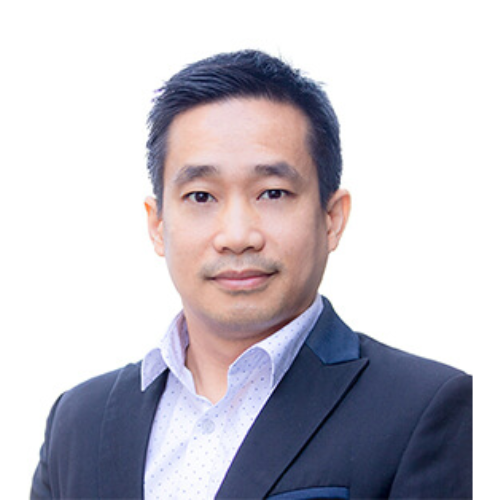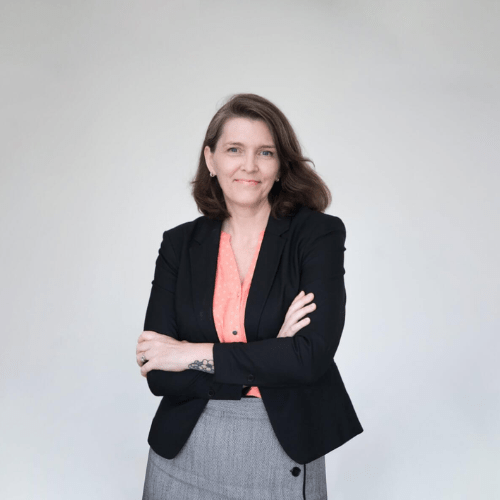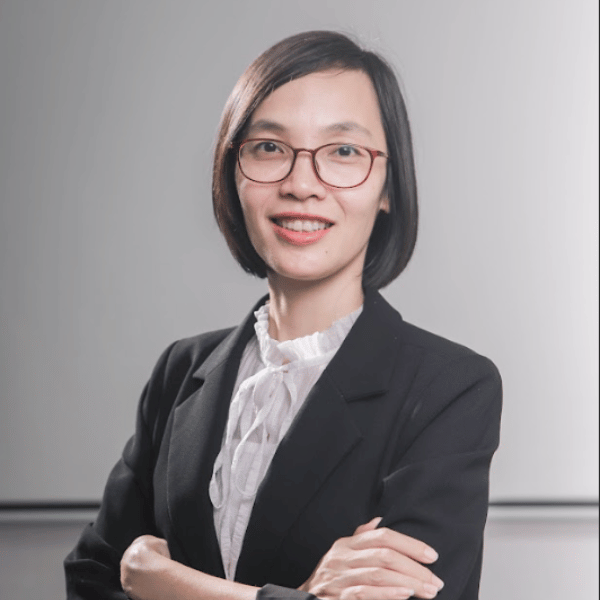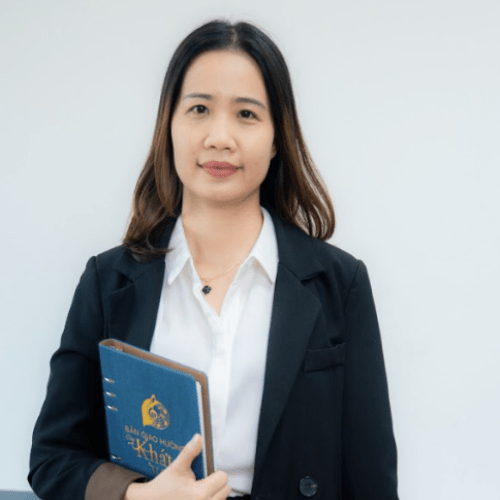Renowned scientist Albert Einstein once said, “Pure mathematics, in its way, is the poetry of logical thought.” Like pieces of poetry, mathematics also carries its beauty. Only when not constrained by knowledge from books, not pressured by rigorous assessments, can young eyes perceive the subtle beauty behind the numbers, and only then can their hearts make room for the blossoming love of mathematics.
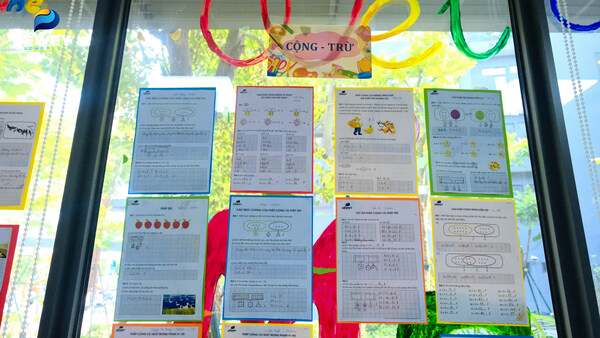
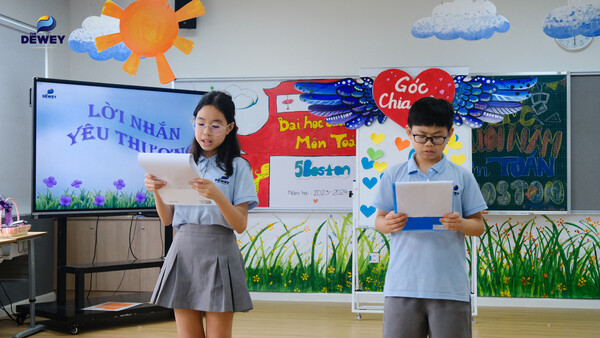
Inspired by the program “Year-End Reunion,” the “Year-End Math Lesson” at Dewey creates a setting in a celestial court, where the Kitchen Gods (students) report to the Jade Emperor about the knowledge they have acquired throughout the school year. Each Kitchen Gods represents a different subject or theme within the curriculum, such as Natural Numbers, Geometry-Algebra, Equations, etc. Gone are the rigid appearances and complex formulas; mathematics appears friendly and approachable through verses and rhymes. The natural performances of the young actors bring forth refreshing laughter and provide practical knowledge beneficial to parents.

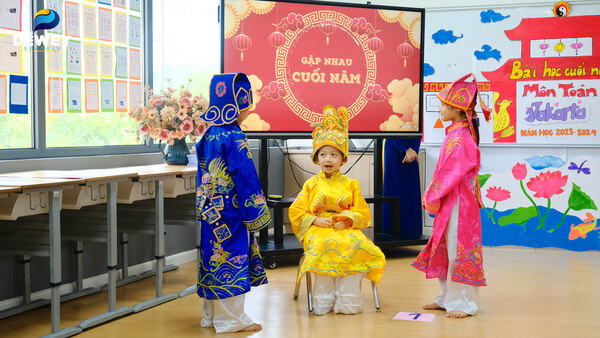
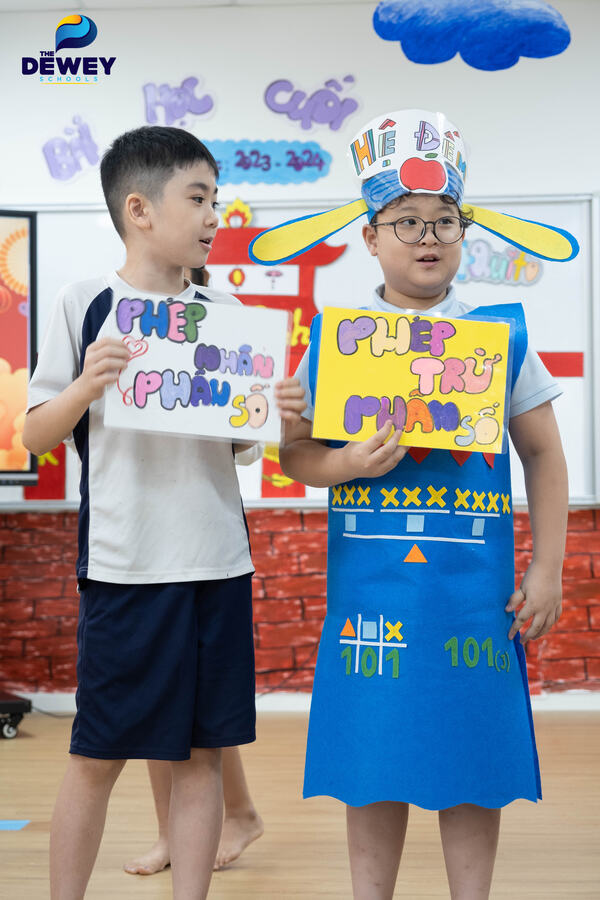
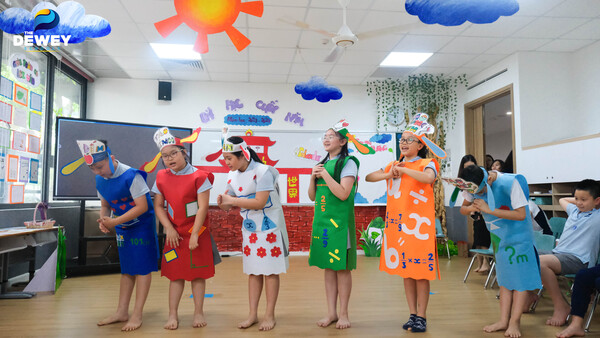
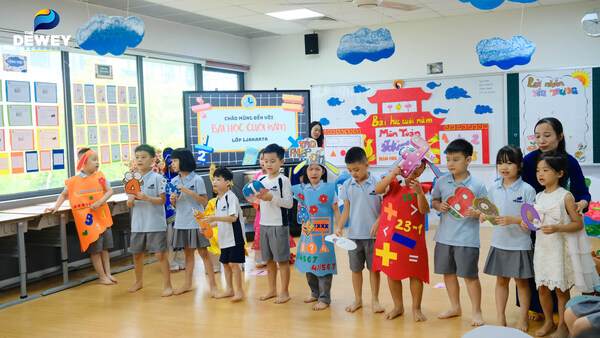
Ve ve ve ve
Hear the multiplication’s charm,
Pairing the elements,
Then unfolding history.
The concept of multiplication,
Numbers in a fraction,
Multiplied by the fractional number,
Forms the multiplication table.
From 2 to 9.
The Year-End Math Lesson also enlivens the atmosphere with excitement through the “Math Challenge” segment. Here, parents have the opportunity to apply the knowledge their children have learned to decipher problems and puzzles of logic. Bright smiles adorn the faces of the children, their tiny hands swiftly jotting down solutions and calculations, eager arms eagerly raised after each question… This is the clearest evidence of TDSers’ love and passion for mathematics.
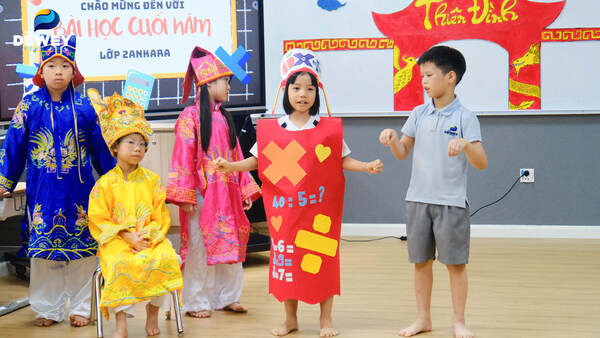
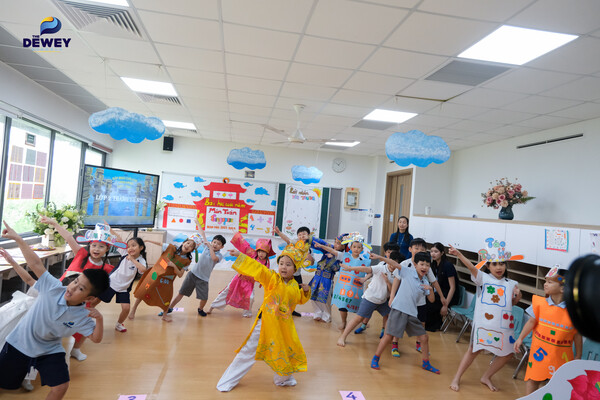
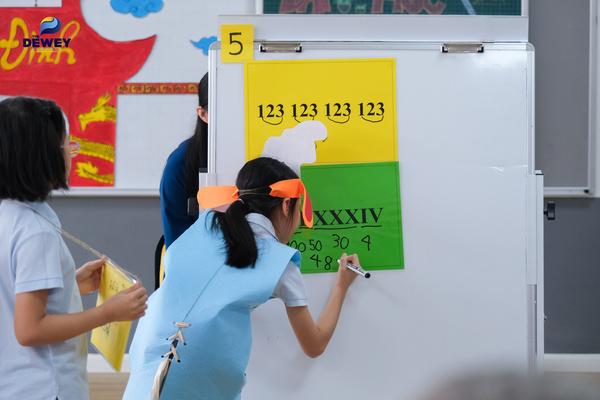
This love naturally comes to the children through extracurricular lessons and enthusiastic classroom hours. It is nurtured and cultivated by dedicated teachers who know how to inspire students through vibrant teaching methods, always fostering the innovative spirit of a flat world instead of dry theorems and formulas. Ultimately, teaching mathematics at Dewey is not about turning students into “problem-solving machines.” It is about nurturing their love for mathematics, instilling the application of logical thinking into practicality; that’s the essence.
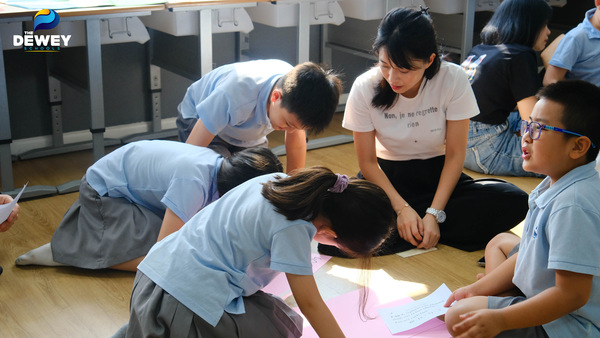
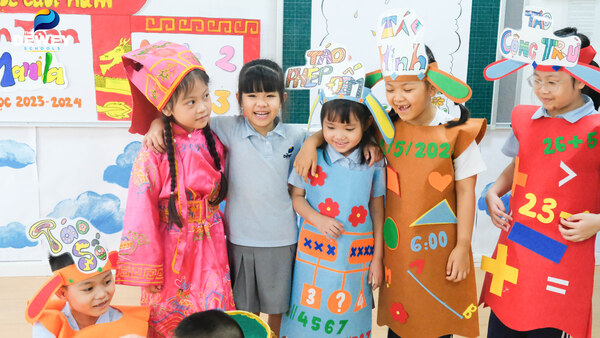
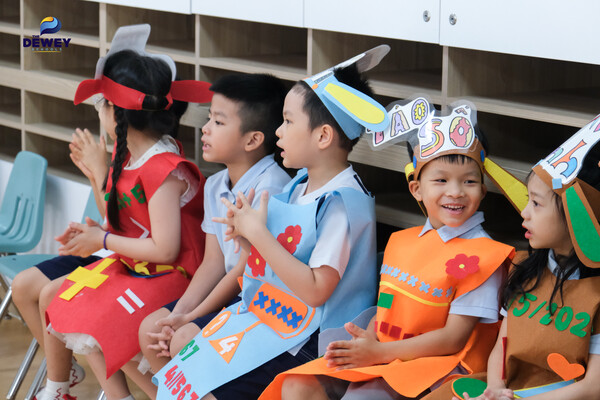
“I still remember my daughter’s first-grade classes, where she was introduced to the concept of sets for the first time. Back then, “whole” and “part” were entirely new concepts to her. However, through the unique approach and exceptional teaching methods at Dewey, these concepts were ingrained in her memory for a long time, and later calculations became very natural. Today, seeing my children’s educational achievements, directly participating in solving math problems with them, I, like all parents here, am completely reassured that they have a solid mathematical foundation for future cognitive development.” Mr. Bui Ngoc Son, parent of a 3Lagos student, shares.
